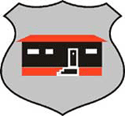|
Crime Free Programs
 The Crime Free Mobile Housing Program is tailor-made to
assist the mobile home community improve their standard of living by
chasing the criminal element out of their community. The police,
management, and the residents form a partnership to win the battle against
crime, and to improve the quality of life of the residents. The Crime Free Mobile Housing Program is tailor-made to
assist the mobile home community improve their standard of living by
chasing the criminal element out of their community. The police,
management, and the residents form a partnership to win the battle against
crime, and to improve the quality of life of the residents.
Benefits of Being a
Fully Certified Property:
- Decreased criminal activity on property
- Provide safer environment for residents
- Working relationship with police department
- Less litigation
- Use of program logo in advertising
- Increased property values
Cost of
Not Participating
As we look at the result crime and
criminal behavior has in the mobile home community we see that they are
far reaching. They include:
-
Property damage resulting from criminal behavior
-
Eviction costs
-
Increased resentment and anger between residents
-
Management's fear and frustration when dealing
with dangerous residents
-
Good tenants will move out (as the good move out,
the bad will move in)
Phase One:
Training
Property owners, managers, leasing staff,
maintenance personnel, and others in the management team should attend the
entire training program. It is also recommended that police officers
attend the training to understand the civil nature of rental communities,
and to establish a rapport with managers of these communities.
Topics to be discussed at the
Crime Free training include:
Prevention Techniques
-
Preparing the property so it does not attract
crime
-
Applicant screening procedures
-
Defining rental agreements
-
Crime Free Lease Addendum
-
Warning signs of illegal activity
-
Actions to take if illegal activity is
discovered
Proven Management
Techniques
Property Protection
Phase Two:
C.P.T.E.D. Inspection
In the second phase of the program a
representative of the police department will inspect the property to
assess physical security and general appearance of the property. If the
property meets the agency's requirements they will move on to Phase
Three. Follow-up inspections will be done until the requirements are
met.
Mandatory C.P.T.E.D.
Security Requirements:
-
Certificates and signs displayed
-
Applicant criteria and screening
-
Crime Free Lease Addendum
-
Park rules enforced
-
Lighting and landscaping
-
C.P.T.E.D. in rules and regulations
If the property does not meet the mandatory
C.P.T.E.D. requirements, the management will be informed of needed
changes and a follow-up inspection will be conducted.
Phase Three:
Safety Social
In the third and final phase of the program, the
sponsoring law enforcement agency will conduct a "Safety
Social" for residents. This will include information about general
safety principles and crime prevention techniques. This will also give
law enforcement the opportunity to explain the Crime Free Mobile Housing
Program to the residents of the mobile home community.
Management is responsible for providing food,
non-alcoholic drinks and entertainment for this event. It is also
recommended that property managers raffle door prizes as an added
incentive to draw residents to the meeting.
Full
Certification
After completion of the safety social, the
management can post the Crime Free Mobile Housing Program signs on the
property. The program logo can also be used in all advertisements.
What Managers and
Property Owners have to say about the Program:
"The implementation of the
Crime Free
Mobile Housing Program has just been the single, best improvement the
property can point to. When all rental properties join the program, the
quality of life...will be enhanced."
"Implementation of the Crime Free Mobile
Housing Program has contributed immensely to a stable, secure
environment that improves the quality of life for everyone who lives on
the property."
"The Crime Free Mobile Housing Program,
when successfully implemented and properly maintained, is the single
strongest method by which a property owner can easily insure good
management practices."
"Since the induction to the
Crime
Free Mobile Housing Program, visitors to our property are shocked to
learn that we are an 'all age community' and not a 55+ or senior
community."
This website is not
intended to provide specific legal advice. Click here.

E-Mail
|
